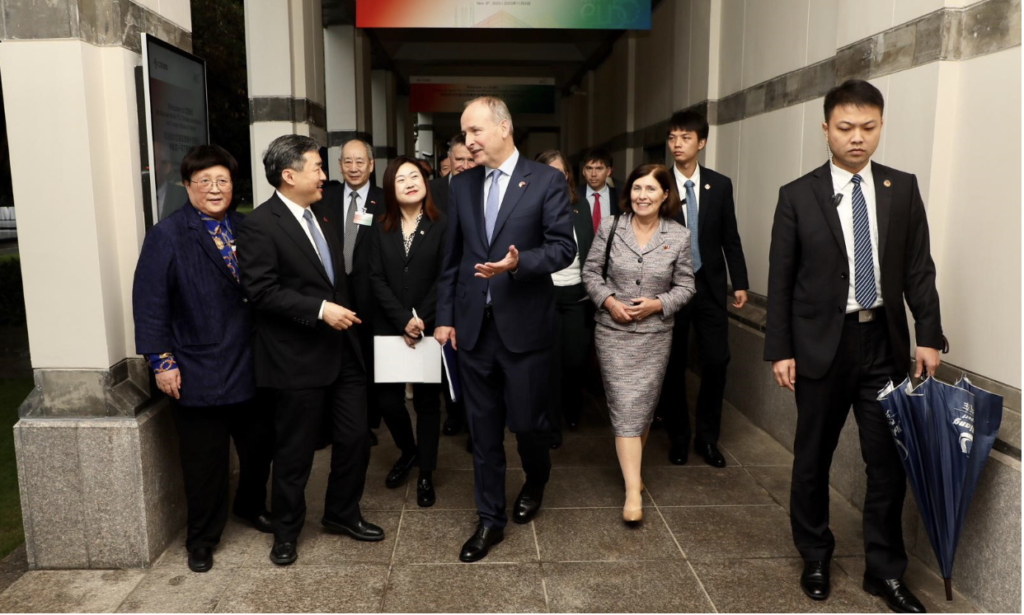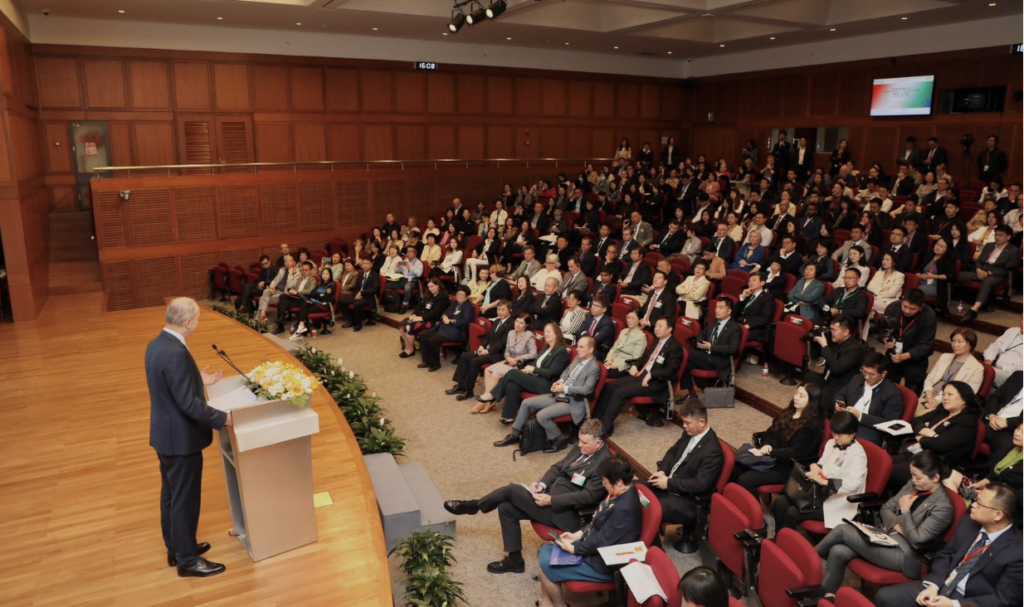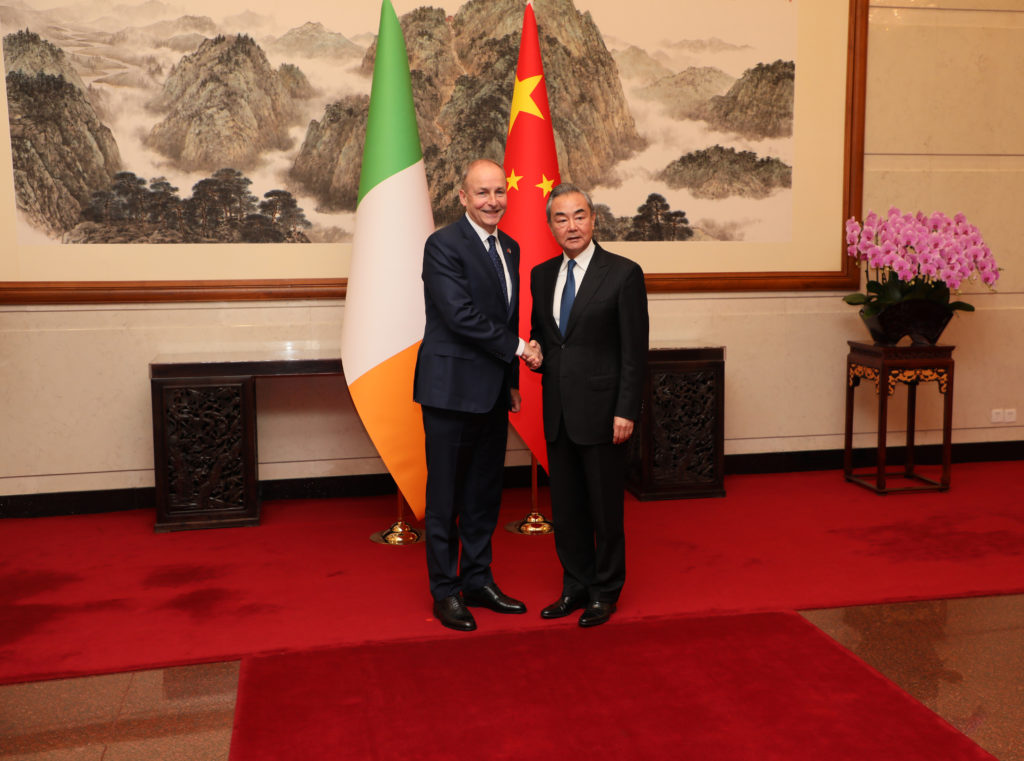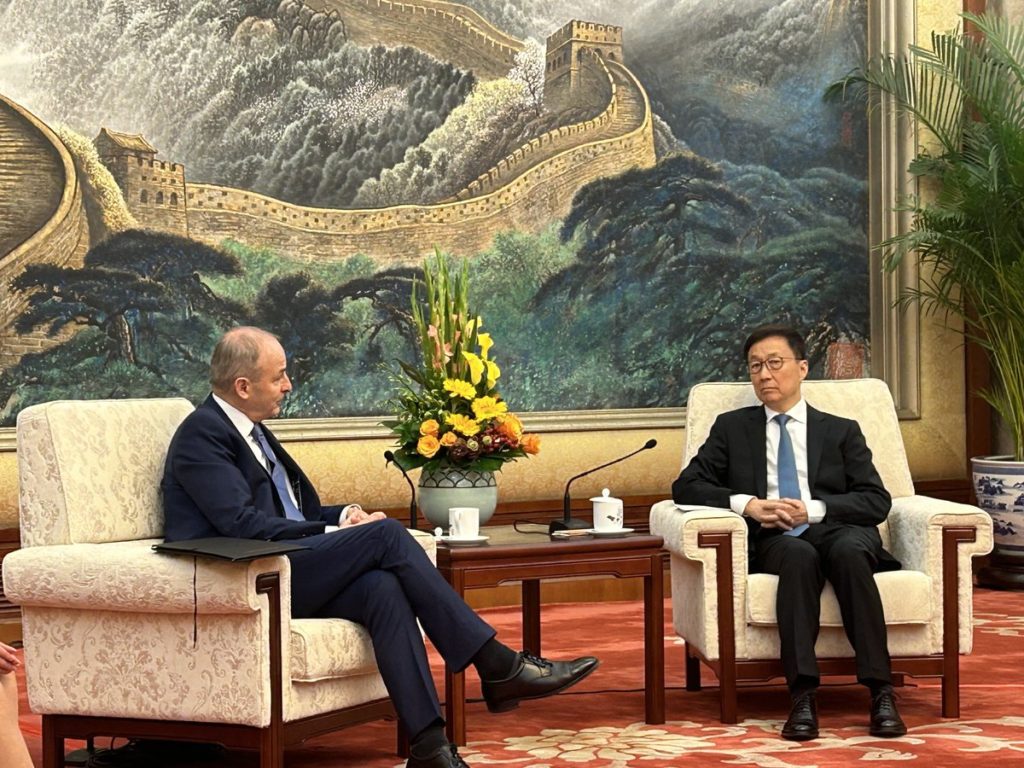THE Tánaiste has called on China to use its influence in Russia to bring the war in Ukraine to an end.
Speaking at the China Europe International Business School in Shanghai, Micheál Martin said “the EU – and Ireland - will continue to request that China use its influence with Russia to deliver an immediate, complete and unconditional withdrawal of its troops from Ukraine; to end this brutal war”.
The Tánaiste told those gathered for the event that China “has a key and active role to play in protecting the rules based multilateral order”.
“The UN Charter and the series of international laws, legal principles, rules, norms and institutions which make up the global multilateral system - and which all of us in the global community helped to create - embody our collective values,” he said.
 Tánaiste Micheál Martin spoke at the China Europe International Business School in Shanghai
Tánaiste Micheál Martin spoke at the China Europe International Business School in Shanghai“That system is being severely tested.
“Armed conflicts, poverty and hunger, grave violations of international humanitarian law and international human rights law are increasing, rather than decreasing.
“China’s active participation at the UN and other global fora remains essential,” he added.
“We ask that China, through its actions and its policies, support the multilateral order which we have created together.
“Russia’s brutal invasion of Ukraine is a clear case in point. It flagrantly violated the UN Charter.
“It breached the territorial integrity and sovereignty of a neighbouring state.
“Russia is committing gross violations of human rights and international humanitarian law; there is ample evidence that its actions in Ukraine may amount to war crimes and crimes against humanity.”
 Tánaiste Micheál Martin spoke at the China Europe International Business School in Shanghai
Tánaiste Micheál Martin spoke at the China Europe International Business School in ShanghaiMr Martin, who is also Ireland’s Minister for Foreign Affairs and Minister for Defence, further addressed the conflict in the Middle East, claiming Ireland and China were aligned in their desire to see a “two-state solution” in the war-torn region.
“Almost exactly one month ago, Hamas launched a brutal terrorist attack in Israel, purposely targeting civilians,” he said.
“Over 1400 were killed and over 230 taken hostage. Both Irish and Chinese citizens were amongst the victims. The horror of those attacks remains with us.”
He added: “Ireland believes that Israel has the right to counter the terrorism of Hamas. But this right must be exercised in line with international humanitarian law.
“The UN Secretary-General has made it very clear; even wars have rules. International humanitarian law exists for a reason. Its overarching aim is to protect civilians. That means all civilians, everywhere.
“Israelis and Palestinians deserve to live in peace, security and dignity.
“Palestinian aspirations for statehood and sovereignty are absolutely legitimate and must be taken forward.”
 Tánaiste Micheál Martin's met with Chinese Foreign Minister Wang Yi earlier this week
Tánaiste Micheál Martin's met with Chinese Foreign Minister Wang Yi earlier this weekMinister Martin, who is on a four-day visit to China this week, went on to confirm Ireland’s position on the ongoing conflict and their “agreement” with China to work towards a solution.
“Like Ireland, China is committed to a two-state solution and in my discussions with my Chinese counterparts, we agreed to work together in pursuit of this aim,” he confirmed.
“That aspiration – two states living side by side in peace – may seem further away than ever.
“But we must all act to strengthen and support the moderate voices on both sides of this conflict.”
Regarding Ireland’s relationship with China, Mr Martin admitted that while they “will not always” agree, they want to cultivate a “constructive partnership”.
“Part of any mature relationship, of course, is a recognition that we will not always share the same priorities and the same perspectives,” he said.
 The Tánaiste met with Vice President Han Zheng at the Great Hall of the People (Pic: Dfa.ie)
The Tánaiste met with Vice President Han Zheng at the Great Hall of the People (Pic: Dfa.ie)“Ireland wants a bilateral relationship with China – and we want to see an EU relationship with China - where our values and interests are protected and promoted.
“And it is perhaps in this area where the greatest potential for misunderstanding lies,” he warned.
“So let me set out clearly how Ireland sees our engagement with China.
“A constructive partnership with China on global challenges is a necessity.
“Whether on global health, on climate change, or on the delivery of the Sustainable Development Goals, China is a key interlocutor.
“There is much we can do together, through the multilateral system, and bilaterally, to live up to our responsibilities as States on these critical issues.”

